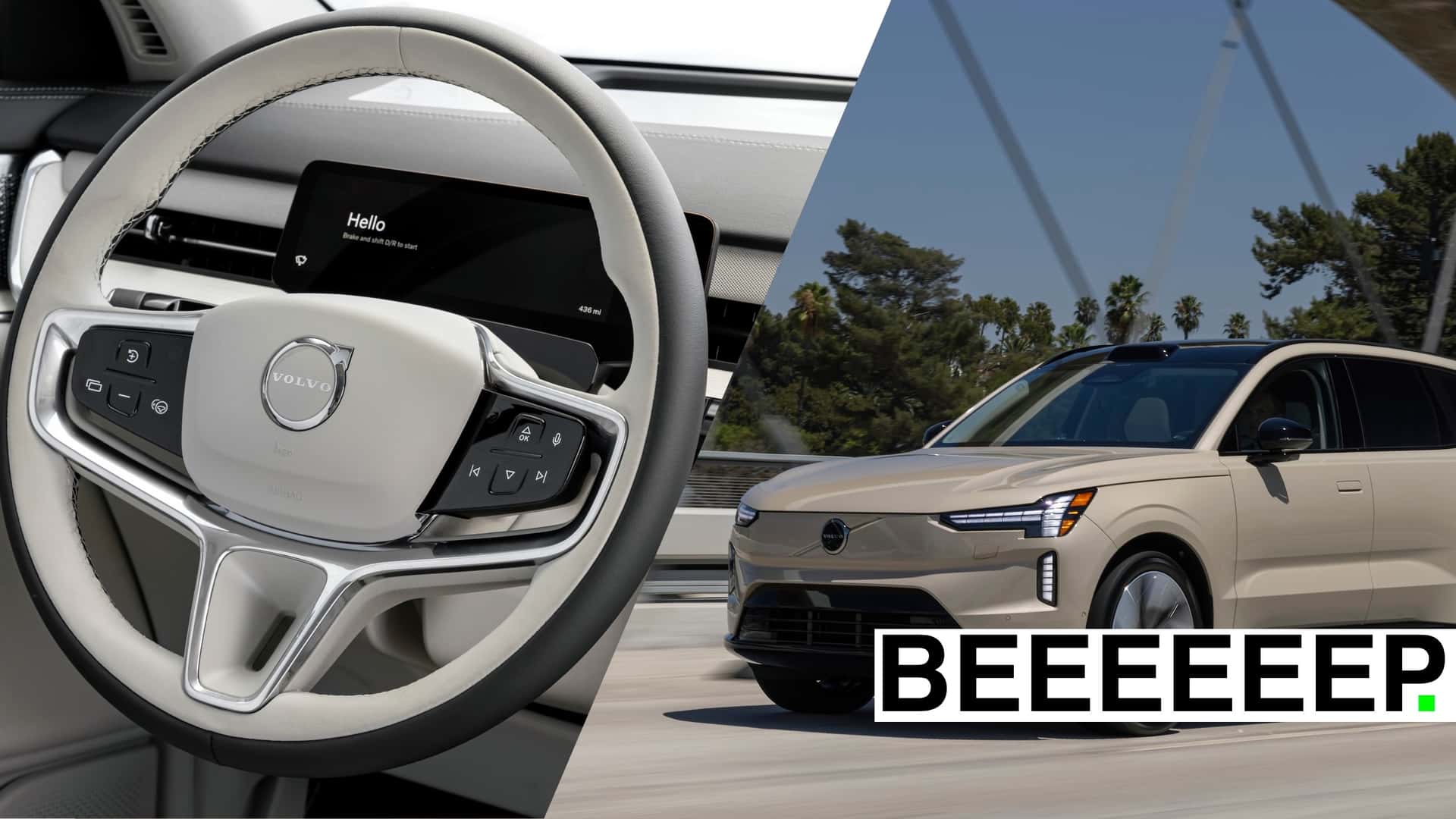
THE VOLVO EX90 WILL BEEP AT YOU FOR LOOKING AT THE ROAD TOO MUCH
Everyone knows that looking away from the road can be dangerous. Here's why Volvo thinks looking at it too much is a problem, too.
- Volvo's newest generation of active safety systems makes its U.S. debut on the EX90, with stronger driver-monitoring capability.
- While many systems will warn you if you don't look at the road enough, the Volvo will sound an alert if you are looking at the road too much.
- Volvo tells InsideEVs that staring at the road is a sign of cognitive distraction, which can be just as harmful as more obvious forms of distraction.
Modern cars love to beep at you. They beep at you if you stray from your lane. If you signal when there's someone in your blindspot. If you put anything in the back seat. If you forget your phone, or don't grab it quickly enough to satiate the ever-present beeping overlords. They beep if the windows are down, or there's anything behind you. And they beep if you're not looking at the road. Volvo, though, long an innovator in beeping technology, has a new one for you: The new EX90 beeps at you if you look at the road too much.
You read that correctly. And no, it isn't stupid. Like many of these beeps, it's actually pretty clever.
The all-new EX90 has Volvo's latest generation of safety tech, including driver monitoring.
"We have done a lot of research in house at Volvo. So if you have like 80% of your focus on the road, that's normal," Elsa Eugensson, a senior manager on Volvo's Advanced Driver Assistance Systems (ADAS) team, told InsideEVs. "But if you're below 60[%], then you're probably distracted. You are [spending too little time] looking at the road."
But if you've got more than 90% of your focus on the road, "then you are like, staring, which could indicate that you have a cognitive distraction," she said. "Maybe you're thinking of something else, something happening in your life."
Read Our EX90 First Drive Impressions
- 2025 Volvo EX90 First Drive: Promising But Incomplete
- The $80,000 Volvo EX90 Cut One Infuriating Corner
That makes sense. Most people's eyes wander a bit while they drive. You look at the scenery, check your gauges, maybe check what song is playing. When I'm staring straight ahead with no eye movement, that's usually not a sign that I'm hyper focused on the thing in front of me.
Eugensson says that when the car detects that you're focused on the road lewss than 60% or more than 90% of the time, it'll trigger an alert to focus up. The first one will be a gentle nudge in the gauge cluster, and the car will escalate that if you don't respond. So yes, you can get beeped at by your car for staring straight ahead. But given how easy it can be to zone out for miles at a time—especially if you're using an advanced driver assistance system like Volvo's Pilot Assist to control your throttle, braking and steering—it's good to give blank-staring drivers a wake-up call. As I note in our review and our Reel below, though, the driver monitoring system on the EX90 I drove on the launch wasn't working, so I never experienced this or tested it myself.
This type of monitoring system is becoming more important as three trends converge. The average attention span has considerably shortened over the last couple of decades, making it hard for many to focus during long drives. That comes as drivers deal with ever-present smartphones and constant pings from work, friends and family, all of which have made distracted driving more prevalent. To fight that, automakers have introduced active safety features that relieve some of the burden of driving, but that can make it even easier to zone out or check your phone.
Volvo and other automakers know that mitigating distraction is key to increasing road safety and decreasing the harmful affects of shrinking attention spans and phone addiction. They've long tried to keep drivers' eyes on the road. But Volvo's the first company to tackle a problem we didn't even realize existed: People whose eyes are on the road, but whose minds aren't.
Contact the author: [email protected].
Related Stories
2024-09-03T19:26:05Z dg43tfdfdgfd